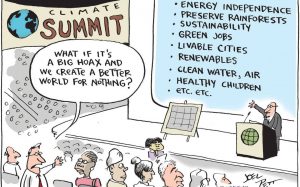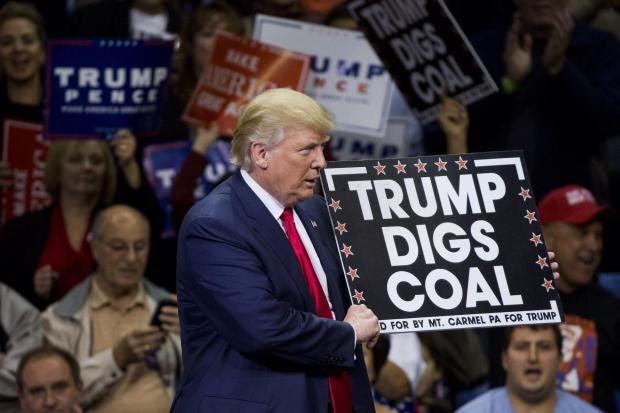“There’s one issue that will define the contours of this century more dramatically than any other, and that is the urgent and growing threat of a changing climate.”
— Ex U.S. President Barack Obama, UN Climate Change Summit, September 23, 2014.

In the autumn of 2015, a landmark agreement was signed by UN delegates in Paris, France, to combat the ever-present threat of climate change. On the 12th of December, the UNFCCC (United Nations Framework Convention on Climate Change), and all 196 participating countries signed an agreement to take action and set standards towards addressing climate issues. This became known as the Paris Climate Accord. By November of the following year, the policy came into force, and by June 2017, 75.5% of member countries had fulfilled their pledge and commitment.
However, by the time of June 1, 2017, U.S. President Donald J. Trump announced he was revoking all commitment from the Paris Accord and subsequent climate mitigation. Despite this threat, in accordance with Article 28 of the Paris Climate Agreement, no member country can leave the agreement until November 4, 2020, meaning Trump’s rescinding from the Accord would not see fruition until said year. This article is not to debate the legitimacy of climate change, but to question the misguided withdrawal made by President Trump. To provide insight into the issue of climate change and its legitimacy, here are multiple articles and sites to educate:
- Climate change: How do we know?
- The Science of Climate Change
- Seven Things to Know About Climate Change
- In Antarctica, Two Crucial
Glaciers Accelerate Toward the Sea

Trump’s reasons for leaving the agreement mainly stem around the idea that such a “diversion” of efforts would hinder the U.S. economy and, “put (the U.S.) at a permanent disadvantage.” Perhaps this stems from Trump’s economic focus which was present in his campaign, accompanied by the promises he made to blue-collar workers, namely coal miners. With this revitalization of an already failing, outdated industry, a complete lack of regard for the agreement and the environment as a whole is evident. President Trump’s movement for more fossil fuels, such as coal, is rooted in the claim that in complying with the Paris Climate Accord, a significant decrease in jobs would arise.
However, the World Bank estimates around 13.5 jobs would be created for every million dollars of spending in U.S. wind and solar infrastructure. In areas more focused on energy efficiency, 16.7 jobs would be created for every million dollars of spending. This is a stark contrast compared to the 5.2 jobs per $1 million for oil and natural gas, and also the 6.9 jobs per $1 million for coal. Another more general government study finds job creation from clean energy generally (renewables plus energy efficiency) is 5.3 times greater than from coal and 6.7 times greater than from natural gas. The idea that an economy would surge because of the minimal jobs created in oil and gas instead of those in green energy fields seems ridiculous. Yes, the market currently does favor the oil and and gas moguls who own the market, but jobs in renewable energy have faced a steady incline since 2012, and are now at the same level as fossil fuels.

The United States is one of the world’s tycoons for exports on fossil fuels, but being a superpower and perhaps the role model for westernization comes with a responsibility currently being ignored under the Trump Government. It is not a right to be able to haphazardly use a source of fuel holding direct ties to the greenhouse effect, but a privilege and a responsibility. By dismissing the inevitable threat faced by our civilization, sloth and ignorance are perpetuated to the populace, and the vicious cycle of being imprudent continues. In a matter such as environmental stewardship, his outlook can not stand.
Trump claims, “The United States, under the Trump administration, will continue to be the cleanest and most environmentally friendly country on Earth. We’ll be the cleanest. We’re going to have the cleanest air. We’re going to have the cleanest water.” Actions speak louder than words, especially for the President of the United States of America. The Environmental Protection Agency under his presidency has scrapped rules preventing the dumping of waste into public water, and limitations on emissions on vehicles and factories. The simplest of actions can have important and long lasting results. Despite the goal of reducing the world’s temperature by a seemingly mere 0.9 degrees Celsius, keep in mind, this temperature was similar to the temperature during the Industrial revolution. Seeing how far we’ve come since then, it’s not a matter of if, but a matter of when. When should we start taking our future, and the future of the world as we know it seriously? We may have to wait until 2020 to find out.
Sources:
Milman, Oliver. “Fact check: Trump’s Paris climate speech claims analyzed.” The Guardian, Guardian News and Media, www.theguardian.com/environment/ng-interactive/2017/jun/02/presidents-paris-climate-speech-annotated-trumps-claims-analysed.
Perkins, Madeleine Sheehan. “How leaving the Paris Climate Agreement could affect the US.” Business Insider, Business Insider, 1 June 2017, www.businessinsider.com/paris-climate-agreement-trump-decision-2017-6.
Kats, Greg. “How many jobs does clean energy create?” GreenBiz, GreenBiz Group Inc., 5 Dec. 2016, www.greenbiz.com/article/how-many-jobs-does-clean-energy-create.
Liptak, Kevin. Acosta, Jim. “Trump to withdraw from Paris accord.” Image. valleynewslive June, 1, 2017. Nov. 7, 2017 <http://www.valleynewslive.com/content/news/Trump-to-withdraw-from-Paris-accord-425765024.html>
Reuter, Dominick. “Trump Digs Coal.” Image. independent April 5, 2017. Nov. 9, 2017. <http://www.independent.co.uk/news/business/news/donald-trump-administration-paris-climate-agreement-coal-companies-peabody-energy-us-global-warming-a7667921.html>
Pett, Joel. “Climate Summit.” Image. kentucky March 18, 2012. Nov. 14, 2017. <http://www.kentucky.com/opinion/op-ed/article44162106.html>